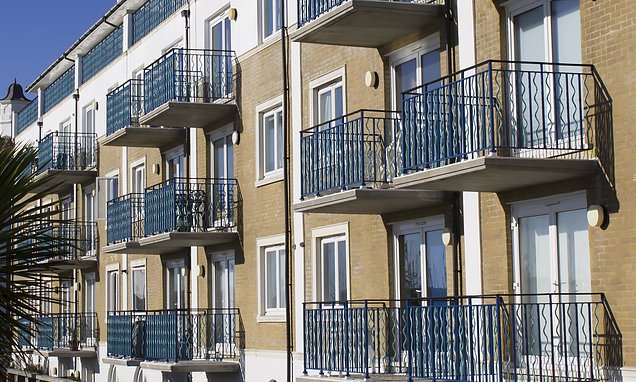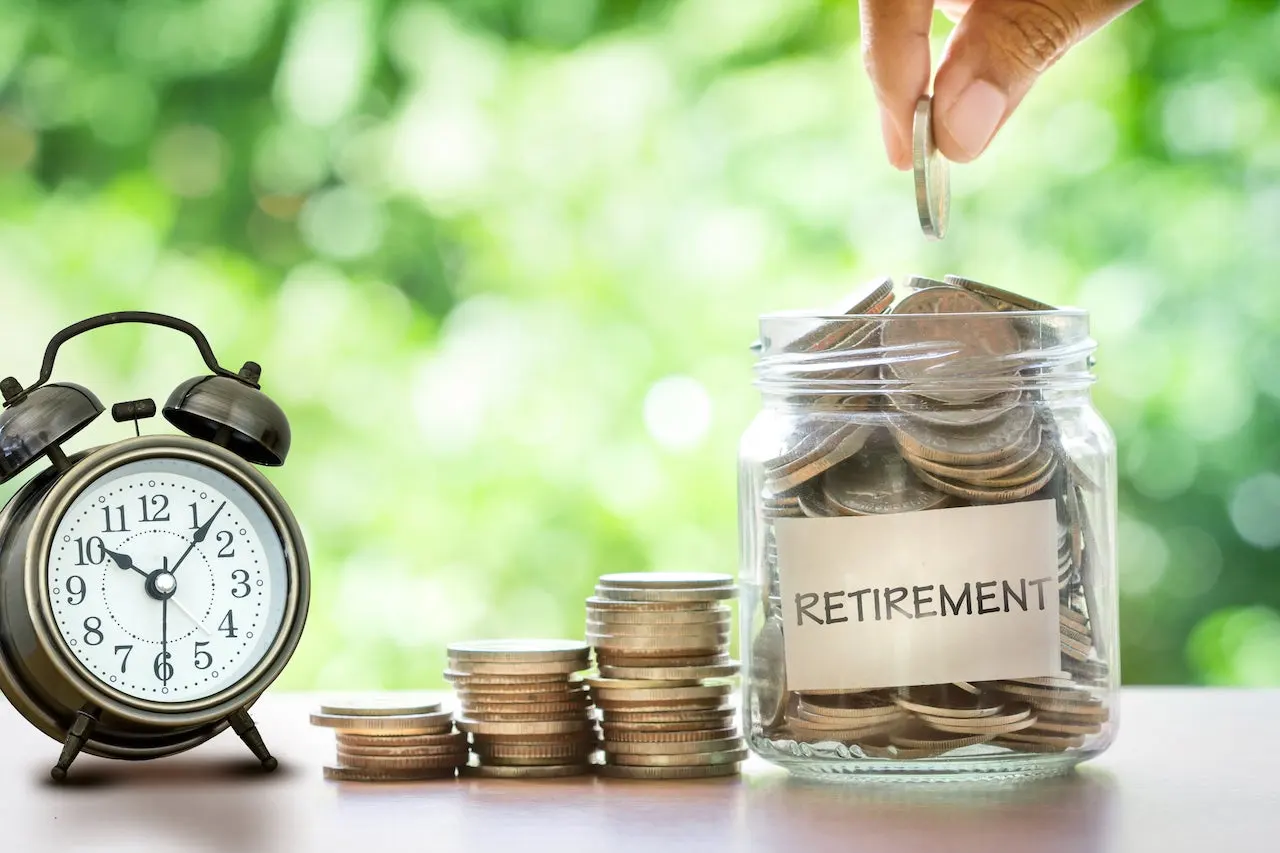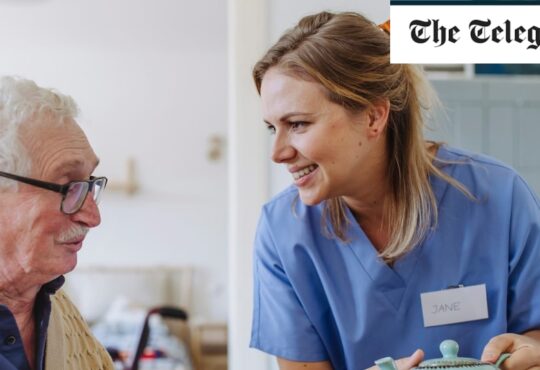
By Tanya Jefferies for Thisismoney.co.uk
09:22 16 May 2023, updated 09:22 16 May 2023
- Nearly 5m adults are still living with their parents, census figures show
- Many might never afford to buy a property and pay off a mortgage
- Median or ‘middle of the pack’ rent on a two-bedroom property is £9,500 a year
People who end up renting in retirement will have to save staggering sums to fund modest accommodation and living costs, a new study has found.
It would take a pension pot of £269,000 alone to generate around £9,500 per year, the median or ‘middle of the pack’ rent on a two-bedroom property in the UK.
That is on top of the £348,000 pot plus a full state pension needed to achieve a ‘moderate’ £23,300-a-year income after tax to live on in old age.
The estimate of the huge chunk renting in retirement will take out of your pension fund came as official data revealed nearly five million adults are still living with their parents, and may never afford to buy a property and pay off a mortgage.
The census figures show the overall number jumped 15 per cent to 4.9million from 2011 to 2021, and that more than half of 20-24 year-olds are living in the family home.
Soaring house prices, financial pressures and caring duties are keeping families under the same roof for longer.
Some adults currently living with parents will never get on the housing ladder, and if they do many are likely to be burdened by mortgage payments instead of rent in retirement, rather than being mortgage-free like previous generations.
Related Articles
HOW THIS IS MONEY CAN HELP
‘Whether renting or buying, there is a real risk that that at least part of your pension will end up having to pay for housing costs as well as every-day living costs,’ says former Pensions Minister Steve Webb, now a partner at LCP which crunched the numbers on paying rent in retirement.
Webb says his firm calculated the potential cost of renting during retirement separately because it was vital to look at people’s whole situation, including any housing costs, to help them make realistic plans for the future.
Rent or mortgage payments, social care costs and income tax are not included in the standard industry measure of what people require for a minimum, moderate or comfortable retirement.
This says individual incomes of £12,800, £23,300 and £37,300 a year are needed for basic and decent and comfortable lifestyles in retirement respectively. For a couple, the figures are £19,900, £34,000 and £54,000.
That is based on different baskets of goods and services like food and drink, transport, holidays, clothes and social outings, compiled in the annual Retirement Living Standards report from the Pensions and Lifetime Savings Association.
The full rate state pension for people retiring since 2016 is currently worth £10,600 a year.
Webb, who is This is Money’s pensions columnist, says: ‘For a long time, the pensions world has assumed that most people in retirement will have paid off their mortgage and can therefore manage on much less than when they were in work.
‘But with younger generations finding it harder to get on the housing ladder, this could all change.
‘Our research suggests that the pension pot needed by someone who has to pay a regular rent out of their retirement savings will require a pension pot well beyond the reach of most ordinary people.
‘It is not only renters who may still have to fund housing costs in retirement. More than half of all new mortgages taken out by first-time buyers now last over 30 years, and with young people taking longer to get on the property ladder, these mortgages could easily take them beyond pension age.’
Webb cites government research published earlier this year showing people likely to be renters in retirement are at much higher risk of under-saving compared with those who will own a home outright.
When the annual living standards study was released recently, Quilter’s head of retirement policy John Greer noted: ‘The figures from the PLSA all assume that retirees are living rent or mortgage free in their homes.
‘Therefore, while these numbers make sense now, for future generations these figures will have to rise considerably.
‘This is due to soaring house prices meaning that many struggle to find the money to buy a house or are forced to takeout marathon mortgages with terms that stretch into their 70s to achieve lower monthly mortgage payments.
‘Similarly, The PLSA’s figures also do not account for the potential costs of requiring social care. According to the ONS, male healthy life is around 62.8 years and for women it is 63.6.
‘Meanwhile life expectancy was 79.0 years for males and 82.9 years for females meaning that many people will spend a significant proportion of their retirement in ill health potentially needing to access costly care.’
The Institute for Fiscal Studies recently released the following chart, which shows that less than 5 per cent of people born in the 1930s and 1940s were private renters, and 6 per cent born in the 1950s were renting by their mid 60s.
‘For those born in the 1960s, the fraction who are private renters has been stuck at 10 per cent for around three decades and, now in their mid 50s, shows no clear signs of falling.’ said the IFS’s ‘Challenges for the UK pension system’ report.
‘The potential for higher rates of private renting amongst those approaching retirement is even greater for younger generations, though there is considerably more uncertainty about how these patterns will evolve for them.’
But the IFS warned that recent trends suggest a growing fraction of the population will have to save for a retirement that includes paying rent each month, costs which are likely to be covered in part by housing benefit.
It said inheritances might counteract or mitigate this for younger generations, allowing some private renters to purchase a home outright later in life.
But the IFS added: ‘Two factors that may limit the ability for this to play a substantial role will be the fact that relatively few will inherit to purchase a home outright and those who are most likely to receive significant inheritances are likely to be richer themselves, and therefore likely to be already homeowners.’
Some links in this article may be affiliate links. If you click on them we may earn a small commission. That helps us fund This Is Money, and keep it free to use. We do not write articles to promote products. We do not allow any commercial relationship to affect our editorial independence.






